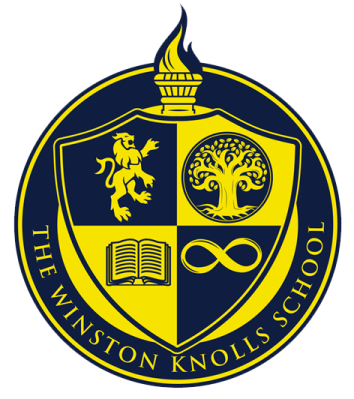The Winston Knolls School uses the Unique Learning System and News-2-You as its two major sources for curricular material. This is used in the high school program but will be supplemented based on student ability and interest. The Winston Knolls School high school course catalogue follows the high school graduation requirements as suggested by the Illinois State Board of Education. All students are expected to meet these guidelines, unless determined at the student’s IEP meeting. Students are enrolled in courses as required by their home district. If the student’s home school district has stricter credit requirements for graduation, every attempt will be made to meet these requirements.
Academic credit is awarded to students based on a combination of achievement and time spent in class. In general, students earn academic credit by passing regularly scheduled classes. Students earn course credit based on work done in class, assessments, and homework. Students are educated based on their intellectual and cognitive functioning. All curricular content and lessons are modified to meet their needs and ability level. Grades earned by students may be impacted by attendance. English, Mathematics, Social Science, Science, and electives meet five days a week. All high school students participate in Adaptive Physical Education three times a week. All academic lessons are administered in a self- contained classroom setting, where one teacher delivers all subjects. The Winston Knolls School has an Adaptive PE teacher who is responsible for delivery of instruction in this area.
The Winston Knolls School administers both the Partnership for Assessment of Readiness for College and Careers PARCC assessment and the Dynamic Learning Maps Assessment (DLM). Student participation in, as well as accommodations and modifications for, either assessment will be determined at the IEP meeting. All students enrolled in The Winston Knolls School high school program are eligible for the Extended School Year (ESY), but participation in this program will be determined at the IEP meeting. Students participating in ESY earn credit toward graduation.
Lessons are created with the belief that students learn best through interaction and activity rather than by listening. Adolescents, more specifically those enrolled at a therapeutic day school, have intellectual capacities seldom tapped by traditional schooling. Instructors make a connection to students because these connections can help teachers make better instructional choices. Lessons are designed to include a full range of sensory motor experiences, including music, smell, touch, and emotion. Lessons are designed to encourage the use of inquiry or problem-based learning. We address the cognitive changes that occur during adolescence, as students move from concrete thinking to abstract thinking. In many cases, the change from concrete thinking to abstract thinking presents stressors for our students; we are ready to address these concerns as they arise.
The Winston Knolls School uses a child centered approach to learning. Ideally, we honor how students learn and nurture their unique talents because engaging the senses and emotions will increase student attention span and heighten memory. We use adolescent literature to boost literacy and address contemporary issues. When students see how what they study in school is relevant to them, they become excited about learning and bring a passion to the classroom.




